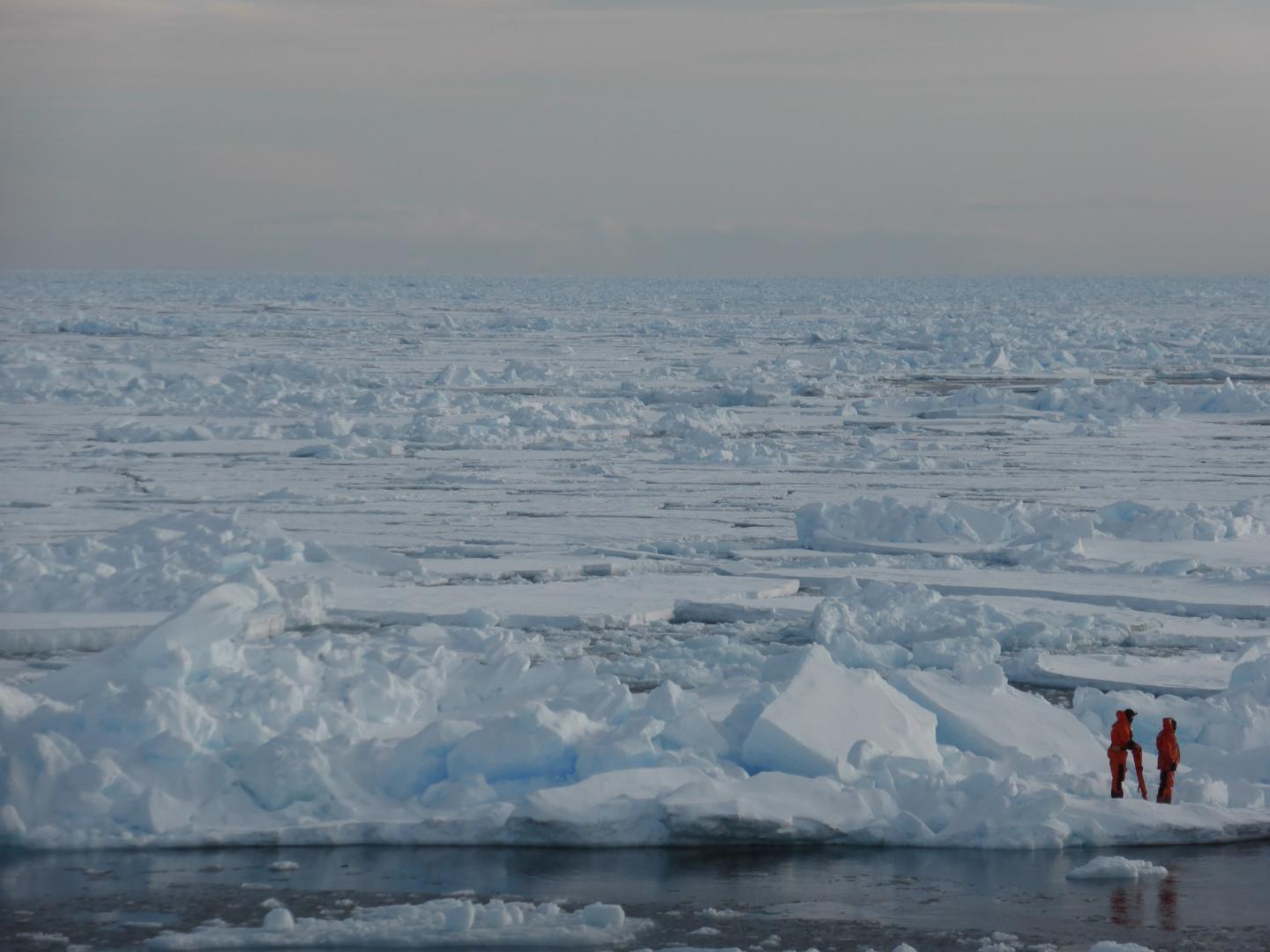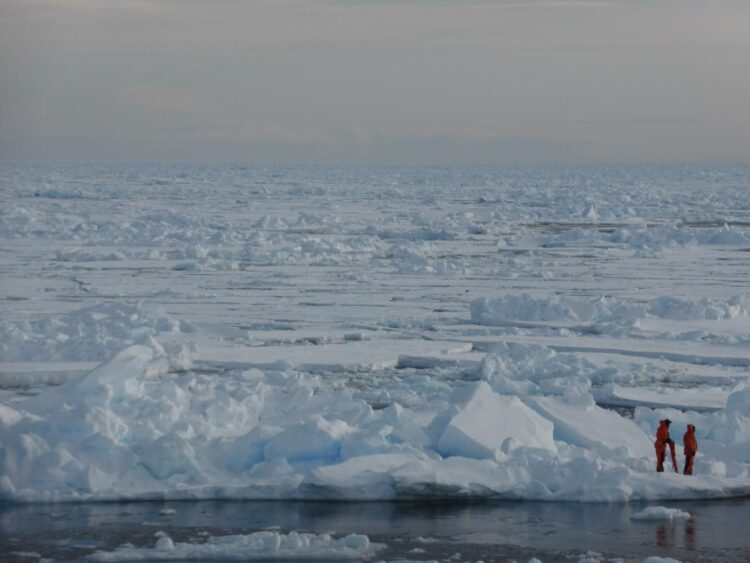Study shows that if CO2 emissions are reduced rapidly, ice-free years may only occur occasionally

Credit: Dirk Notz
Summer Arctic sea-ice is predicted to disappear before 2050, resulting in devastating consequences for the Arctic ecosystem. The efficacy of climate-protection measures will determine how often and for how long. These are the results of a new study involving 21 research institutes from around the world, including McGill University.
The North Pole is presently covered by sea-ice all year. Each summer, the area of sea-ice coverage decreases and grows again in winter. However, as a result of global warming, the overall area of the Arctic Ocean covered by sea-ice has reduced rapidly over the past few decades. According to the researchers, this substantially affects the Arctic ecosystem and climate. The sea-ice cover is a hunting ground and habitat for polar bears and seals and keeps the Arctic cool by reflecting sunlight.
“While the Arctic sea-ice extent is decreasing during this transition to an ice-free Arctic, the year-to-year variability in extent greatly increases, making life more difficult for local populations and ice-dependent species,” says co-author Bruno Tremblay, Associate Professor in the Department of Atmospheric and Oceanic Sciences at McGill University.
The study published in Geophysical Research Letters analyzed recent results from 40 different climate models. Using these models, the researchers assessed the evolution of Arctic sea-ice cover in a scenario with high CO2 emissions and little climate protection. As expected, summer Arctic sea-ice disappeared quickly in these simulations. Surprisingly, they also found that ice disappeared in some simulations where CO2 emissions were rapidly reduced.
How often the Arctic will lose its sea-ice cover in the future critically depends on future CO2 emissions, the study shows. If emissions are reduced rapidly, ice-free years only occur occasionally. With higher emissions, the Arctic Ocean will become ice-free in most years. This tells us that humans still determine how often the Arctic Ocean will be ice-free in the summer, depending on our future level of emissions, says Tremblay.
###
About the study
“Arctic Sea Ice in CMIP6” by SIMIP Community is published in Geophysical Research Letters. The research was supported by funding from the European Union’s Horizon 2020 Research and Innovation program.
DOI: https:/
Photos (credit: Dirk Notz): https:/
About McGill University
Founded in 1821, McGill University is home to exceptional students, faculty, and staff from across Canada and around the world. It is consistently ranked as one of the top universities, both nationally and internationally. It is a world-renowned institution of higher learning with research activities spanning two campuses, 11 faculties, 13 professional schools, 300 programs of study and over 40,000 students, including more than 10,200 graduate students.
McGill’s commitment to sustainability reaches back several decades and spans scales from local to global. The sustainability declarations that we have signed affirm our role in helping to shape a future where people and the planet can flourish.
Media Contact
Shirley Cardenas
[email protected]
Original Source
https:/
Related Journal Article
http://dx.





